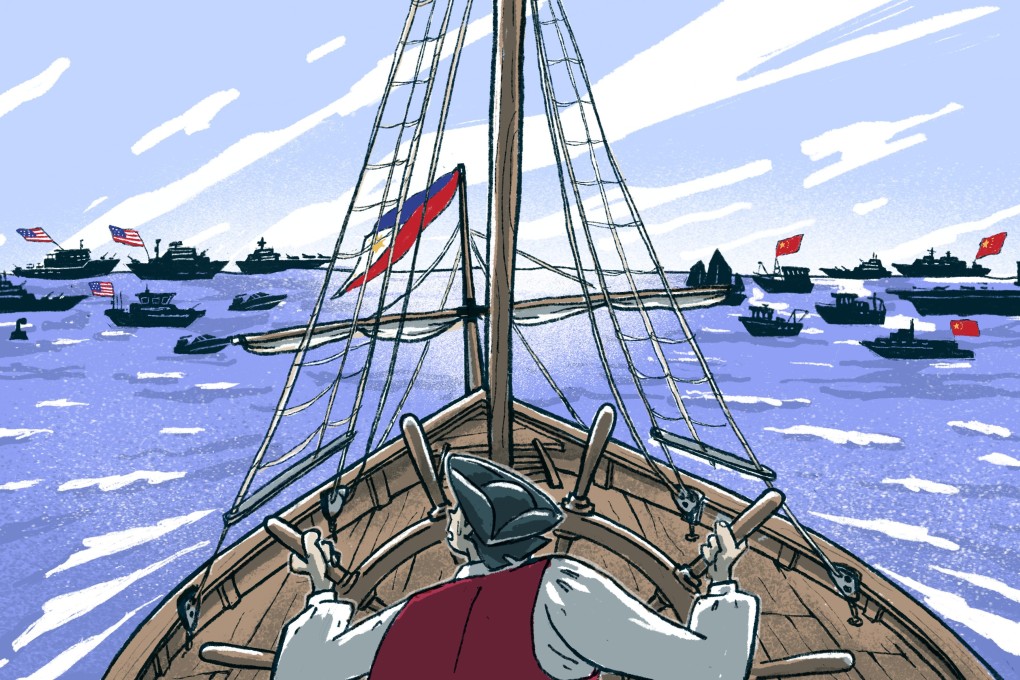Advertisement
Philippine election: will China and Whitsun Reef dispute loom large?
- Beijing’s aggressive stance in the South China Sea set to have impact on 2022 presidential poll, given incumbent Rodrigo Duterte’s tolerance of it
- But Manila is unlikely to endanger the US-Philippines alliance, which helps both parties to counter Chinese assertiveness
Reading Time:6 minutes
Why you can trust SCMP
23

This is the second in a two-part series on the potential impacts of presidential elections in the region on relations with China and the United States. Here, Sarah Zheng examines how territorial disputes with Beijing could influence next year’s Philippine poll.
Beijing’s actions in the South China Sea are threatening to become a central issue in next year’s Philippine presidential election, as tensions flare over Chinese vessels’ presence near features in the disputed waters.
Analysts say President Rodrigo Duterte’s approach to Beijing’s increasingly aggressive assertions in the waters will influence the position of contenders to succeed him in the vote next May, which Duterte cannot contest because of the one-term limit.
Advertisement
Manila’s efforts to challenge China’s claimed sovereignty over most of the energy-rich sea were backed by an international tribunal’s 2016 verdict that most of Beijing’s claims had no legal basis, but Duterte has previously said he would “set aside” the ruling.

01:05
Philippine coastguard sends strong warning to Chinese vessels during South China Sea patrol
Philippine coastguard sends strong warning to Chinese vessels during South China Sea patrol
The sensitivity of the issue has surfaced again, however, with disputes this year over Whitsun Reef and Scarborough Shoal – encapsulated this week when Philippine Foreign Secretary Teodoro Locsin Jnr tweeted that China should “get the f*** out”.
Advertisement
Using his personal Twitter account, Locsin demanded China remove its ships from features inside the Philippines’ exclusive economic zone but also within Beijing’s nine-dash line. He tweeted: “China, my friend, how politely can I put it? Let me see … get the f*** out. What are you doing to our friendship? You. Not us. We’re trying. You.”
Advertisement
Select Voice
Select Speed
1.00x